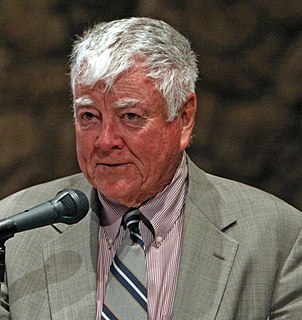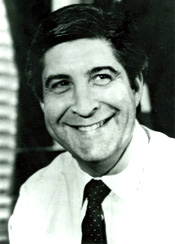A Quote by Pete McCloskey
We were environmentalists of the Teddy Roosevelt theory. We believed in separation of church and state. We believed in the independence of the Supreme Court not being subject to politicians.
Related Quotes
Ultimately, the court is heading to a doctrine of 'separation of campaign and state.' This doctrine, like separation of church and state or separation of military and civilian authority, is not explicit in the Constitution but flows naturally from its structure and commitment to freedom and democracy.
The notion that the Supreme Court comes up with the ruling and that automatically subjects the two other branches to following it defies everything there is about the three equal branches of government. The Supreme Court is not the supreme branch. And for God's sake, it isn't the Supreme Being. It is the Supreme Court.
Jack believed in something—he believed in white witches and sleighs pulled by wolves, and in the world the trees obscured. He believed that there were better things in the woods. He believed in palaces of ice and hearts to match. Hazel had, too. Hazel had believed in woodsmen and magic shoes and swanskins and the easy magic of a compass. She had believed that because someone needing saving they were savable. She had believed in these things, but not anymore. And this is why she had to rescue Jack, even though he might not hear what she had to tell him.
As you know, the separation of church and state is not subject to discussion or alteration. Under our Constitution no church or religion can be supported by the U.S. Government. We maintain freedom of religion so that an American can either worship in the church of his choice or choose to go to no church at all.
Well, it [evolution] is a theory, it is a scientific theory only, and it has in recent years been challenged in the world of science and is not yet believed in the scientific community to be as infallible as it once was believed. But if it was going to be taught in the schools, then I think that also the biblical theory of creation, which is not a theory but the biblical story of creation, should also be taught.
Between being praised and persecuted condoned and condemned I might understandably have become bewildered particularly at the brand of ethics sometimes displayed by the staunch defenders of Christianity. But of one thing I am sure: I am sure that I fought not only for what I earnestly believed to be right but for the truest kind of religious freedom intended by the First Amendment the complete separation of church and state.

































